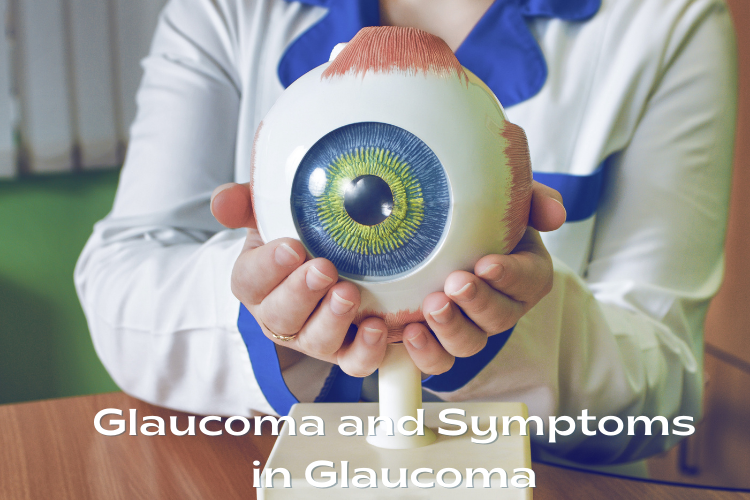
What Is Glaucoma?
Glaucoma is a disease that damages the eye’s optic nerve. It is the optic nerve that sends signals from your retina to your brain, where these signals are interpreted as the images you see.
In the healthy eye, a clear fluid called aqueous humour circulates inside the front portion of your eye. To maintain a constant healthy eye pressure, your eye continually produces a small amount of aqueous humour while an equal amount of this fluid flows out of your eye. If you have glaucoma, the aqueous humour does not flow out of the eye properly. Fluid pressure in the eye builds up and, over time, causes damage to the optic nerve fibres.
What are the Symptoms in Glaucoma?
Glaucoma can cause painless, and progressive loss of eyesight, if it is left untreated.. When glaucoma develops, usually you don’t have any symptoms and the disease progresses slowly. In this way, glaucoma can rob you of your vision very gradually, without you having any hint of it.
Fortunately, early detection and treatment (with glaucoma eye drops, glaucoma surgery or both) can help preserve your vision. These will help in detecting glaucoma early only when you turn up for a routine eye check up.
Who is at the risk for glaucoma?
- Advancing age
- Family history of glaucoma
- African or Hispanic ancestry
- Excessive Farsightedness or nearsightedness
- Elevated eye pressure
- Past eye injury
- Having a thinner central cornea
- Conditions that affect blood flow, such as migraines, diabetes and low blood pressure
How is Glaucoma diagnosed?
- Measure the pressure in your eye (Tonometry)
- Inspect your eye’s drainage angle (Gonioscopy)
- Inspect your optic nerve (Ophthalmoscopy, SLO)
- inspect nerve fibres on retina (OCT)
- Test your side, or peripheral, vision (visual field test)
- Measure the thickness of your cornea — the clear window at the front of the eye (Pachymetry)
Who should be screened?
Early detection and treatment can protect your vision.
- People of any age with glaucoma symptoms or glaucoma risk factors, such as those with diabetes, a family history of glaucoma, or those of African descent
- Adults with no symptoms of or risk factors for eye disease should have a complete eye disease screening by age 40 — the time when early signs of disease and changes in vision may start to happen.
- Adults 65 or older should have an eye exam every year, or as recommended by your ophthalmologist.
How is glaucoma treated?
It depends on the type of glaucoma, the severity of disease and its response to the treatment.
Medicated eye drops which lower your eye pressure in one of two ways — either by slowing the production of aqueous humour or by improving the flow through the drainage angle. These eye drops must be taken every day. Just like any other medication, it is important to take your eye drops regularly as prescribed by your ophthalmologist.
If you have glaucoma, it is important to tell your ophthalmologist about your other medical conditions and all other medications you currently take.
Laser treatment & Surgery may be advised in few selected cases , depending on the severity of disease & compliance with medication

